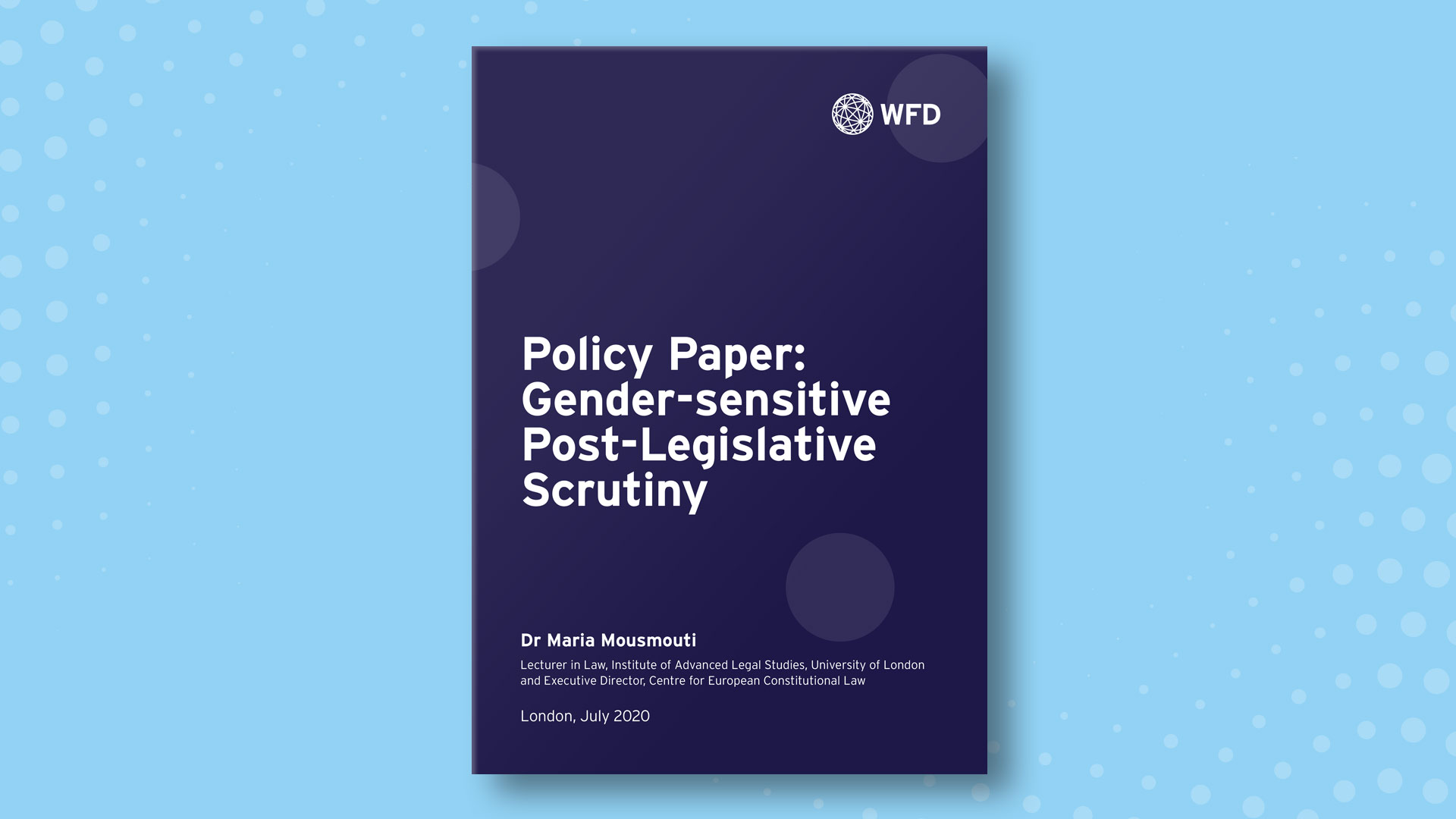The policy paper titled ‘Gender-sensitive post-legislative scrutiny’ examines the meeting point between post-legislative scrutiny and gender analysis.
The purpose of the case study is to assist parliamentarians, parliamentary staff, policy makers, parliamentary development practitioners and civil society activists to design or support processes that identify gender-based consequences in the implementation of legislation.
The policy paper is part of a broader project of the Westminster Foundation for Democracy on Gender analysis and postlegislative scrutiny. The project includes several deliverables that are complementary to the present document and address different aspects of the topic. These are: a case study on gender-sensitive post-legislative scrutiny of general legislation; a case study on post-legislative scrutiny of gender-specific legislation; and a case study on data and gendersensitive post-legislative scrutiny.
The present document starts by examining the relationship between legislation, sex and gender and the importance of gender-sensitive legislation as a legislative goal. It then moves into ways for achieving gender-sensitive laws and mainstreaming gender concerns throughout the legislative cycle. It then looks specifically at how post-legislative scrutiny can be made gender-sensitive, the role of parliamentary committees in this, the scrutiny questions to be asked, the kind of data to collect, the stakeholders to consult with, the challenges in the process. Last but not least, it addresses the ways to make post-legislative findings gender-sensitive and what to do after.

